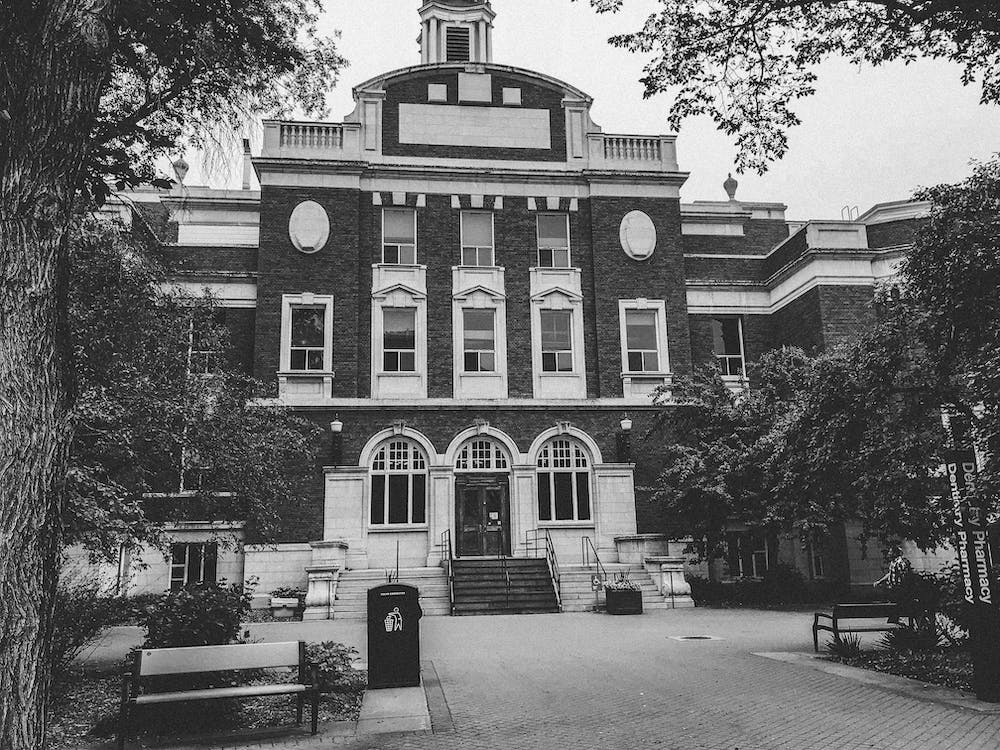If you are planning to study in Australia from Nigeria, it’s essential to calculate the costs before deciding. It gives you an idea of how much tuition costs at your preferred university and how to budget it. That is why we compiled this comprehensive post about the cost of studying in Australia for Nigerian students.
Australia is one of the world’s most affordable and top study destinations. The academic quality is superb, and the qualifications are widely recognized. Read more about Australian University deadlines or intakes and top universities in Australia with no application fee here.
It is also worth noting that, unlike in certain countries, such as the United States, Nigerian students with valid study visas can work part-time, which helps to offset the cost of studying abroad. In addition, after completing their studies, they could obtain post-study work visas to gain work experience. So, there are lots of benefits to studying in Australia.

Without much ado, let’s consider the cost of studying in Australia for Nigerian Students.
Here, we will estimate the cost of studying in Australia while also considering other costs, such as food, accommodation, expenses of travel, and health coverage.
Table of Contents
- 1 Average costs of different levels of study in Australia
- 1.1 Tuition Fees at Australian Universities for Nigerian Students
- 1.2 Most affordable universities in Australia for Nigerian Students
- 1.3 Accommodation Cost of Studying in Australia for Nigerian Students
- 1.4 Food Cost of Studying in Australia for Nigerian Students
- 1.5 Transportation Cost of Studying in Australia for Nigerian Students
- 1.6 Scholarships and student funding in Australia for Nigerian Students
- 1.7 Rounding It Up
Average costs of different levels of study in Australia
When it comes to studying in Australia, there are a variety of different levels of education you can pursue. Their education system is broken down into four distinct levels:
- Reception/Primary School (years R-6/7)
- Secondary School (years 7/8-10)
- Senior Secondary School (years 11 and 12)
- Tertiary Education
Primary education in Australia runs for 7 to 8 years, and while Secondary school education in Australia is compulsory until year 10 or age 16, however, to move onto higher education, students must complete year 12 to receive their certificate.
When it comes to tertiary education in Australia, you can pursue diploma or certifications courses (vocational training) to undergraduate and postgraduate degrees.
Here are the typical cost of different levels of study in Australia as a benchmark.
| Education Type | Average Tuition |
| Secondary school | AUD $7,800 – $30,000 per anum (₦2,402,400 – ₦9,240,000) |
| English language course | AUD $300 per anum (₦92,400) |
| Vocational Education and Training | AUD $4,000 – $22,000 per anum (₦1,232,000 – ₦6,776,000) |
| Foundation courses | AUD $15,000 – $33,000 total (₦4,620,000 – ₦10,164,000) |
| Bachelor Degree | AUD $15,000 – $33,000 per anum (₦4,620,000 – ₦10,164,000) |
| Master’s Degree | AUD $14,000 – $37,000 per anum (₦4,312,000 – ₦11,396,000) |
| Doctoral Degree | AUD $14,000 – $37,000 per anum (₦4,312,000 – ₦11,396,000) |
| MBA | AUD $11,000 – $121,000 per anum (₦3,388,000 – ₦37,268,000) |
Source: studyinaustralia.gov.au
Tuition Fees at Australian Universities for Nigerian Students
If you are considering studying an undergraduate or postgraduate degree program in Australia, you should know the cost of tuition fees varies based on the type of school as well as the cities or areas where the school is located.
Currently, Australia has 40 public universities and 3 private universities. You will find out that Private universities cost more than public ones, as is the case everywhere in the world.
Take, for instance, one private university in Australia, Bond University, for which the cost of an engineering course can come to around 50,964 AUD (₦15,696,912).
Whereas tuition fees are slightly lower in small Australian cities and suburbs than tuition fees in larger cities such as Melbourne and Sydney.
Here is a summary of master’s degree tuition costs (per year) in a few universities in Australia.
| University | Business | Medicine | Accounting | Law | Engineering |
| Flinders University | 35,000 | 74,000 | 36,000 | 33,500 | 37,000 |
| University of South Australia | 35,900 | – | 35,900 | 32,600 | 36,900 |
| University of Adelaide | 42,000 | 76,000 | 42,000 | 39,000 | 42,000 |
Most affordable universities in Australia for Nigerian Students
Based on our findings, most Nigerian students usually opt for Cheaper schools. So, if your budget is thin and you’re looking for cheap universities in Australia, check the list of universities with the most affordable tuition fees below:
- Flinders University – tuition fees start at 10,350 AUD/year
- IPAG Business School – tuition fees start at 13,000 AUD/year
- University of Wollongong – tuition fees start at 18,800 AUD/year
- University of New England – tuition fees start at 19,100 AUD/year
- Victoria University – tuition fees start at 21,800 AUD/year
In addition, many universities in Australia charge based on education levels. Below we have listed the average cost of studying according to educational level:
| Cost of studying for a bachelor’s in Australia | 15,000 AUD to 33,000 AUD per year |
| Cost of studying for a masters degree in Australia | 20,000AUD to 37,000 AUD per year |
| Cost of studying for a doctoral degree in Australia | 14,000 AUD to 37,000 AUD per year |
Accommodation Cost of Studying in Australia for Nigerian Students
The majority of universities in Australia have a limited number of student dorms for on-campus living. As a result, you may have to rent a private residence or live with a local family (homestay).
Here are the average cost below;
- Homestay: 450 – 1,200 AUD/month
- Student halls of residence: 440 – 1,100 AUD/month
- Rent an apartment: 750 – 1,700 AUD/month
- Share a rented apartment/house: 380 – 850 AUD/month
Food Cost of Studying in Australia for Nigerian Students
If you are looking for Nigerian food in Australia, you may likely not find them. Groceries, on the other hand, are accessible at local supermarkets and typically cost between $500 and $1,000 AUD each month. You can save money by shopping at discount supermarkets such as Aldi, Coles, and Woolworths.
A typical dinner in a low-cost restaurant is 18 AUD, whereas a three-course meal for two costs 80 AUD. If you prefer Asian, Greek, or Italian cuisine, there are several restaurants to select from.
Transportation Cost of Studying in Australia for Nigerian Students
Some universities have private transport arrangements that help students who live on campus or need to go to remote places.
Depending on where you live, you may be eligible for discounts from state programs such as QLD (Queensland), SA (South Australia), or VIC (Melbourne). In addition, a monthly public transportation pass for students costs between 30 and 70 AUD, depending on the city. A bicycle can also be used to get about. One can be rented for roughly 40 AUD per day.
In addition, you can get health insurance coverage rates starting at 30 AUD/month.
Scholarships and student funding in Australia for Nigerian Students
Based on the estimates we provided above, you can see that tuition fees and the cost of living in Australia are pretty high. However, the Australian government is devoted to making international students feel welcome in their country by offering scholarship programs with public funding totaling more than $200,000,000 AUD.
These scholarships provide full tuition fees, travel expenses, living allowances, and other benefits, such as health coverage for successful applicants from selected countries, including Nigeria. The scholarship can cover undergraduate, postgraduate, or vocational studies depending on the level of study you are interested in pursuing.
Here are some examples of scholarships to study in Australia:
Australia Awards – These awards are government-funded scholarships and fellowships that cover full tuition, travel expenses, and a portion of monthly living expenses.
Destination Australia Program (DAP) – This Australian Government-funded mobility program assists domestic and international students in enrolling in academic institutions in Australia’s remote locations.
Rounding It Up
As promised, we have provided a comprehensive list of the cost of studying in Australia for Nigerian students considering pursuing higher education there. One thing apparent is that the tuition fees and other expenses, such as accommodation, food, and transportation, are high. But, many scholarships and study loans in Australia can help you offset the costs.
And more importantly, kindly note that the tuition fees listed above vary widely and should always be confirmed with the relevant institution. In addition, your living expenses may also vary depending on your lifestyle and location.
Finally, subscribe to our website to receive updates on topics like this.









